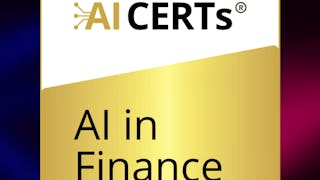![[Featured Image] A woman who receives an accountant salary works on her laptop and calculator simultaneously at her desk.](https://images.ctfassets.net/wp1lcwdav1p1/4lEMV8T2q0POr8USghFscQ/0229775bc96466b756556127b2f1b816/GettyImages-1311977471.jpg?w=330&h=216&q=60&fit=fill&f=faces&fm=jpg&fl=progressive)
Accountant Salary: Average, Range, and Influencing Factors
Discover how an accountant salary might fluctuate based on geographic location, experience, education, skills, and company.
January 8, 2025
Article
Discover an array of rewarding professions in finance. Whether you're passionate about crunching numbers, decoding data trends, or architecting a company's financial future, there's a place for you. Get started with our these free resources.

Explore finance courses and certificates

University of Pennsylvania
Skills you'll gain: Return On Investment, Capital Budgeting, Finance, Capital Expenditure, Forecasting, Cash Flow Forecasting, Financial Modeling, Financial Analysis, Cost Benefit Analysis, Financial Management, Financial Acumen, Corporate Finance, Business Valuation, Cash Flows, Risk Analysis, Depreciation, Loans, Working Capital
Mixed · Course · 1 - 4 Weeks

Yale University
Skills you'll gain: Investment Banking, Risk Management, Financial Market, Financial Regulation, Financial Services, Finance, Business Risk Management, Securities (Finance), Financial Policy, Enterprise Risk Management (ERM), Capital Markets, Behavioral Economics, Banking, Corporate Finance, Governance, Investments, Insurance, Underwriting, Derivatives, Market Dynamics
Beginner · Course · 1 - 3 Months

AI CERTs
Skills you'll gain: Risking, Digital Transformation, Fraud detection, Financial Forecasting, AI Enablement, FinTech, Responsible AI, Finance, Budget Management, Investment Management, Financial Services, Artificial Intelligence, Data-Driven Decision-Making, Budgeting, Emerging Technologies, Business Ethics, Portfolio Management, Business Transformation, Predictive Analytics, Generative AI
Intermediate · Course · 1 - 3 Months
Finance plays a fundamental role in strategy formation, operations management, marketing decisions, and human resources structure. A career in this fast-growing field provides opportunities to use technical skills to drive meaningful business impact. Explore the diverse career paths, essential skills, and job types within finance to start your journey in this exciting and rewarding field.
Interested in business strategy? Find out more about business forecasting and consider a business strategy specialization..
Interested in business administration? Read our guide to business administration degrees or consider a course in business administration.
Interested in finance? Learn more about finance management, or look into entry-level finance jobs.
Ready to start learning? Explore our catalog of business finance, business metrics, and financial analysis courses for beginners and experienced professionals.
Artificial intelligence in finance courses cover a variety of topics essential for understanding and applying AI technologies in the financial sector. These include the basics of machine learning, neural networks, and data analytics. Learners will explore topics such as algorithmic trading, credit scoring, and risk management using AI. Advanced courses might cover areas like natural language processing for financial analysis, robo-advisors, and fraud detection. Practical exercises and projects help learners apply these concepts to real-world financial scenarios, enhancing their ability to develop and implement AI-driven financial solutions.
Yes, absolutely. Coursera offers many courses in financial management topics as well as related business topics such as accounting, investment, and financial markets. You can learn remotely from top-ranked schools like the University of Illinois at Urbana-Champaign and the University of Virginia, so you won’t have to sacrifice the quality of your education to learn online. Indeed, you’ll be completing the same coursework and working with the same faculty as on-campus students at a lower tuition. No matter the current stage of your education or career, that’s a smart financial management decision.
Employers increasingly value continuous learning and skill enhancement. Completing a beginner's Finance course could enhance job applications or may open other career opportunities. Enrolling in a beginner's Finance course is a step forward in your professional journey!